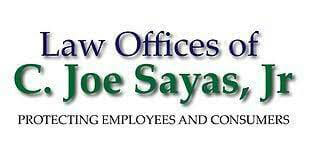Paying flat-rate and commission-employees correctly

Alfred Lax worked for Roto-Rooter as a service technician for over a decade. Roto-Rooter provides plumbing repair and water damage cleanup services to residential and commercial customers. In performing his tasks, Lax travels to customer locations in Roto-Rooter’s vehicles.
Roto-Rooter technicians are compensated either on a flat-rate or commission basis. Due to the technicians’ non-exempt status, they are required to keep track of their hours worked. Technicians were to be paid over time for work of more than 8 hours in a day or 40 hours in a week.
Lax sued the employer on behalf of himself and his coworkers claiming that Roto-Rooter violated several California laws on wages. For example, Roto-Rooter did not pay technicians for their non-productive work time, such as travel time between jobs, time repairing equipment and time on vehicle maintenance. Roto-Rooter also required its technicians to clock in on their company-issued cell phones 45 minutes before their shifts. But technicians are not paid for this time.
For employees who were paid commissions, Roto-Rooter failed to provide these employees with a written, signed contract setting forth the method by which their commissions are paid – a violation of California law.
Other violations include: Roto-Rooter’s failure to compensate technicians for missed rest periods, improper deductions from technicians’ wages for their use of Roto-Rooter’s vehicles to perform their jobs; and failure to reimburse technicians for work-related expenses, and for tools and other equipment employees must buy to do their jobs.
Under California law, whether employees are paid hourly, piece-rate, or on commission, they must be paid no less than the minimum wage for all hours worked. If an employee spends time doing other work-related activities not covered by the plan (such as pick-up or clean-up activities, or attending compulsory work meetings), the times spent doing these are considered hours worked, and must be paid the minimum wage (or an agreed hourly rate, if any).
Piece-rate employees are paid based on the type and number of tasks completed, rather than by the number of hours worked. However, even though compensation is based on the number of tasks completed, employees must receive at least minimum wage for every hour worked, whether or not they complete any compensable tasks during that hour.
In California, when an employee’s compensation is based in whole or in part on commissions, California law requires that the employee’s agreement to this compensation plan must be in writing. The commission agreement must specify the way the commissions will be computed and paid. Employees who are paid by commissions are still entitled to at least minimum wages for each and every hour worked, including overtime pay when necessary. Basing the employee’s pay solely on the ability to generate sales or earnings for the company without regard to the employee’s actual hours worked does not comply with the law. A system of payment that results in employees not being paid for non-productive (or non-selling) time may be illegal.
Non-exempt employees who are paid on a piece-rate or commission plan are still entitled to rights that are provided to hourly employees, such as the right to be provided off-duty meal and rest breaks. An employer shall not require piece-rate or commissioned employees to work during breaks. If an employer fails to provide a meal or rest breaks, the employee is entitled to one additional hour of pay at the employee’s regular rate of compensation for each workday that the meal or rest break (or both) is not provided.
Lastly, an employer must reimburse employees for all necessary expenditures incurred in performing their duties. These include travel expenses; costs of uniforms or special clothing required by the employer; and costs of supplies, tools, materials, or equipment.
Rather than continue with litigation, the parties settled the case and Roto-Rooter agreed to pay $2,598,000 in damages to the technicians.
The Law Offices of C. Joe Sayas, Jr. welcomes inquiries about this topic. All inquiries are confidential and at no-cost. You can contact the office at (818) 291-0088 or visit www.joesayaslaw.com. [For more than 25 years, C. Joe Sayas, Jr., Esq. successfully recovered wages and other monetary damages for thousands of employees and consumers. He was named Top Labor & Employment Attorney in California by the Daily Journal, consistently selected as Super Lawyer by the Los Angeles Magazine, and is a past Presidential Awardee for Outstanding Filipino Overseas.]

